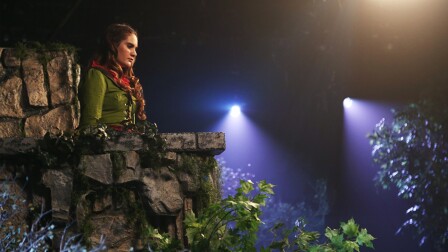First Person: Composer Lisa Bielawa on 'Vireo'
Witches. Wisdom. Wonder. Vireo is an opera created for TV and online broadcast that considers the usage of "female hysteria" throughout the decades. The multi-episode production was composed by Lisa Bielawa on a libretto by Erik Ehn and directed by Charles Otte. "Vireo" is the winner of the 2015 ASCAP Foundation Deems Taylor/Virgil Thomson Multimedia Award.
Twenty years ago composer Lisa Bielawa was inspired by her studies of hysteria and worked with librettist Erik Ehn to create the work "Vireo." Artbound spoke with Bielawa to explore the stories behind the creation of "Vireo" and the historical context behind the episodic opera.
On the conceptual basis of "Vireo"
Vireo really had its birth in the Beinecke Rare Book Library at Yale. I was writing a senior essay that ended up being three times as long as it was supposed to be. It kind of took over my life. I initially thought that I was looking at collaborative male authorship on the subject of female protagonists. But what I found was much, much more than I had bargained for.
It's just unbelievable how many collaborative writings -- case histories, trial documents, evidence of communities of men throughout Western history -- who convened in order to create all kinds of discourse around the same subject matter, which was teenage girls, who were having some kind of transcendent experience.
What actual fields these men were from changed: Were they doctors? Were they priests? In some cases they were experimental artists, who were giving young girls absinthe in the back of a bar, and watching them create spontaneous, automatic poetry.
But the evidence of these young girls was in these collaborative documents that I found. These writings or trial documents that I found, in which there was at the center of it, a young teenage girl. But her own direct voice was missing. It was through the prismatic analysis of what she was saying and doing that you learned about the re-articulation of this phenomenon throughout Western history.
That senior essay is still filed there somewhere at Yale, but I came away from my experience at Yale with all of this research. I remember when Erik Ehn and I started working on this opera. It was before emails, of course. I used to send these thick packages to him. I couldn't believe I was working with someone who would read this stuff. I finally felt that I had found a way to engage with the stuff that I had found through this collaboration and through this project.






















